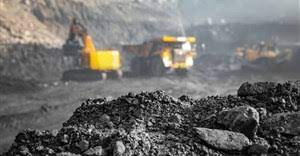The construction phase of the new Gugulethu Colliery in Mpumalanga is in full swing. “We’ve started working on the box cut with the anticipation that the first coal will be extracted sometime around July/August this year,” said Menar MD Vuslat Bayoglu.
Two teams working on the box cut are confiscating the topsoil and stockpiling it separately. The revamped processing plant infrastructure is programmed to be operational by September. The first phase of opencast operation is expected to produce 200 000 t of run-of-mine coal a month. The second phase, which consists of underground mining, should resume in seven years.
The R600-million investment in the Gugulethu project in Mpumalanga makes up more than R1.04-billion worth of investment in South Africa. The project was promised by Menar at President Cyril Ramaphosa’s South Africa Investment Conference. Menar pledged an overall R1.04-billion at the fifth SA Investment Conference to fund two mining ventures.
Additionally, the ventures fall under its subsidiary, Canyon Coal. An additional R440-million will go towards evolving the Thuso project, also in Mpumalanga.
Also Read: Great Dykes Mining in South Africa announces pass in Proof of Concept on project
Significance of the Gugulethu Colliery in Mpumalanga to the local economy
The fully certified Gugulethu Colliery, southeast of Hendrina, is anticipated to create 400 jobs. Developments have advanced well, despite interruptions in the construction of the road at the start due to heavy rains.
Thuso, in Bethal, is also fully licensed and work on its infrastructure plan is being finalized. “If the coal prices stabilise, we should be able to start developing Thuso by the fourth quarter of this year. Both these mines will supply the export market because the local market is currently not viable due to Eskom not burning enough coal,” Bayoglu points out.
However, the greatest challenge is the unavailability of locomotives which is yet to be resolved, resulting in Transnet’s continued underperformance. Additionally, Transnet might also have other challenges on top of the unavailability of locomotives.

